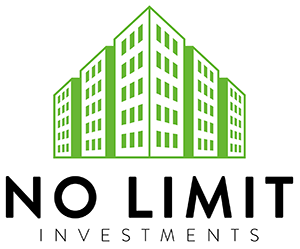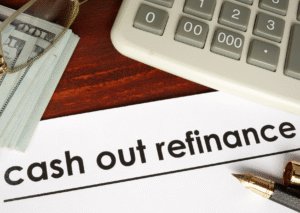What Are Business Purpose Loans and Why Do Real Estate Investors Use Them?
Business purpose loans are designed specifically for non-consumer activities, including real estate investment financing. These loans give real estate investors access to quick, flexible funding without the constraints often found in traditional lending. Unlike personal loans, business purpose loans are based on the income potential of the property, not the borrower’s income.
For real estate investors, this type of loan is especially attractive because it supports deals involving non-owner occupied property loans. Whether you’re buying to renovate and resell or to hold as a rental, these loans provide an efficient path to securing funding.
How Do Business Purpose Loans Differ from Traditional Bank Financing?
The biggest difference lies in the speed and qualification criteria. Traditional bank financing often involves a long approval process with strict documentation requirements. In contrast, business purpose loans are designed for investors who need fast access to capital, often closing in days rather than weeks.
Private money lending for real estate and hard money loans for investors fall into this category. These are asset-based loans, where the focus is on the property itself rather than credit score or tax returns. That makes them ideal for real estate entrepreneurs who are scaling quickly or working on multiple projects simultaneously.
Flexible loan underwriting for investors is a major advantage. Lenders look at the asset’s value, the investor’s plan, and exit strategy rather than traditional debt-to-income ratios. This opens opportunities for investors who may not fit into the typical borrower profile.
What Types of Business Purpose Loans Are Available for Real Estate Projects?
There are several types of business purpose loans tailored to different investment strategies. For short-term projects, fix and flip loan options are popular. These loans cover the purchase and rehab costs of properties that are then sold for profit. Another is the BRRRR strategy financing, which stands for Buy, Rehab, Rent, Refinance, Repeat.
For income-producing assets, rental property mortgage solutions and buy and hold real estate strategy loans are available. These longer-term options let you benefit from monthly cash flow and appreciation. Investors can also pursue construction-to-permanent loan options, ideal for ground-up developments or major renovations that convert into stabilized rental properties.
Short-term needs are met through bridge loans for real estate deals, which help close quickly while arranging long-term financing. Each of these loan types supports a specific stage of the investment process.
How Can Investors Leverage Business Purpose Loans to Scale Their Portfolio?
Smart investors use these loans to grow faster and more efficiently. A seasoned investor might use real estate portfolio expansion loans to acquire multiple properties across different markets. With the right lender, funds can be structured around a tailored game plan, giving investors flexibility and speed.
In this scenario, a cash-out refinance for investors is common. Once a property is rehabbed and tenanted, it can be refinanced based on its new value, freeing up equity to reinvest. This strategy supports the BRRRR method and can help recycle capital with minimal downtime.
Equity-based financing for landlords also plays a key role here, allowing property owners to unlock the value of their portfolio without selling.
What Role Do Loan Metrics Like LTV and ARV Play in Business Purpose Lending?
Loan metrics are central to the business purpose lending model. The loan-to-value ratio for rental properties tells the lender how much risk they’re taking relative to the property’s current worth. Lower LTV means a safer loan, which can result in better terms.
Meanwhile, after-repair value (ARV) calculations are critical for fix-and-flip or rehab loans. Lenders base their funding on what the property will be worth after renovations. This allows investors to borrow more and complete projects they might not otherwise afford.
Understanding these metrics—and how lenders use them—can make or break your financing strategy.
How Do Business Purpose Loans Support Long-Term Rental Strategies?
For landlords and passive investors, business purpose loans can provide reliable rental property mortgage solutions. These are structured around the asset’s income potential, with the debt-service coverage ratio (DSCR) as a primary qualification tool.
DSCR loan requirements are generally easier to meet than conventional mortgage requirements, particularly for properties with strong cash flow. The focus shifts from personal income to rental property cash flow analysis.
This is where equity-based financing for landlords becomes powerful. Investors can tap into their portfolio’s value while continuing to build wealth through rental income and appreciation.
What Are the Typical Terms and Conditions for Business Purpose Loans?
Terms vary based on the type of loan and the lender, but most business purpose loans are short-to-medium term, ranging from 12 to 36 months for flips and bridges, and 5 to 30 years for rentals.
Investment property loan terms may include interest-only payments, balloon payments, or adjustable rates. Many loans are structured to align with your exit strategy, whether that means selling, refinancing, or holding.
Some lenders also offer interest-only options during rehab or lease-up periods, giving you time to stabilize the property before full payments kick in.
How Can Investors Choose the Right Business Purpose Loan Provider?
Choosing the right lender is just as important as choosing the right property. A solid lending partner will understand your investment goals and provide loan structures that match your business model.
Look for a provider that offers multiple loan options, quick approvals, and strong investor support. At No Limit Investments, we specialize in matching investors with strategic funding—from fix and flip loan options to long-term DSCR rental loans.
You should also evaluate their underwriting speed, transparency, and communication. When you’re in the middle of closing a deal, every hour counts.
Ready to Scale with Confidence?

If you’re a real estate investor looking for fast, flexible funding, it’s time to talk to the experts. Whether you’re interested in short-term real estate loans or long-term buy and hold real estate strategy loans, the right business purpose loan can make the difference between stagnation and scale.
At No Limit Investments, we’re here to help you grow smarter, close faster, and build your legacy with funding that works for your strategy.
Contact us today to discuss your next deal—and let’s build something powerful together.
Final Thoughts
As real estate investors ourselves, we know how important it is to have reliable financing that moves at your speed. Business purpose loans give you the tools to compete, grow, and succeed without the red tape of traditional banking. From fix and flip projects to long-term rental portfolios, these loans can fuel your next big win.
At No Limit Investments, we’re committed to helping investors secure funding tailored to their specific goals. If you’re serious about building your real estate business, we’re ready to help make it happen.
Works Cited (MLA Format)
- Federal Reserve Board. “Report on the Economic Well-Being of U.S. Households in 2023.” federalreserve.gov, May 2024, https://www.federalreserve.gov/publications/2024-economic-well-being-of-us-households.htm
- U.S. Small Business Administration. “Understanding Business Loan Requirements.” sba.gov, 2023, https://www.sba.gov/funding-programs/loans/business-loan-requirements
- National Association of Realtors. “2024 Investment and Vacation Home Buyers Report.” nar.realtor, 2024, https://www.nar.realtor/research-and-statistics
- Fannie Mae. “Multifamily Market Commentary – April 2024.” fanniemae.com, 2024, https://www.fanniemae.com/research-and-insights/multifamily
- CoreLogic. “U.S. Home Investor Activity: Trends and Forecasts for 2025.” corelogic.com, June 2025, https://www.corelogic.com/intelligence/us-home-investor-activity-trends
Frequently Asked Questions:
- What is the difference between a business purpose loan and a traditional mortgage?
A business purpose loan is designed specifically for real estate investment or business use, not personal homeownership. Unlike traditional mortgages, these loans are based on the property’s income potential and often have faster approvals, flexible underwriting, and fewer documentation requirements. - What types of business purpose loans are available to real estate investors?
Common types include fix and flip loans, DSCR loans, BRRRR strategy financing, rental property mortgage solutions, bridge loans, and construction-to-permanent loan options. Each loan serves a specific investment purpose, such as acquiring, renovating, refinancing, or holding property. - How does a loan-to-value (LTV) ratio affect my business purpose loan?
The LTV ratio measures how much you’re borrowing compared to the property’s current value. A lower LTV typically means lower risk to the lender, which can result in better loan terms. For rehab projects, lenders often use After-Repair Value (ARV) calculations to assess potential profitability. - Can business purpose loans help me grow a rental property portfolio?
Yes. These loans support long-term strategies like the buy and hold real estate strategy by offering rental property mortgage solutions and cash-out refinance options. Lenders often use rental property cash flow analysis and DSCR loan requirements to qualify you based on income from the property. - How do I choose the right business purpose loan provider?
Look for a lender with experience working with real estate investors, multiple loan offerings, quick underwriting, and strong communication. No Limit Investments, for example, offers flexible funding options tailored to different investment strategies and timelines.







